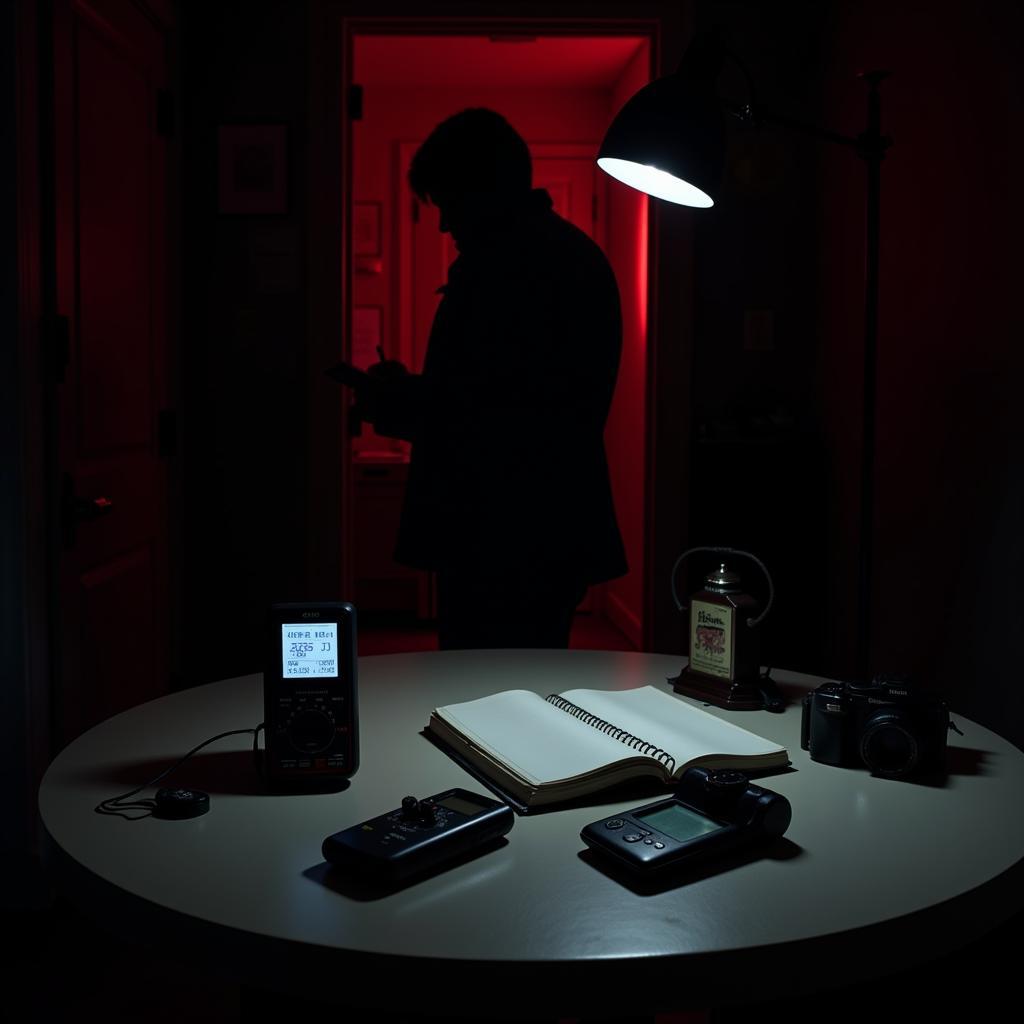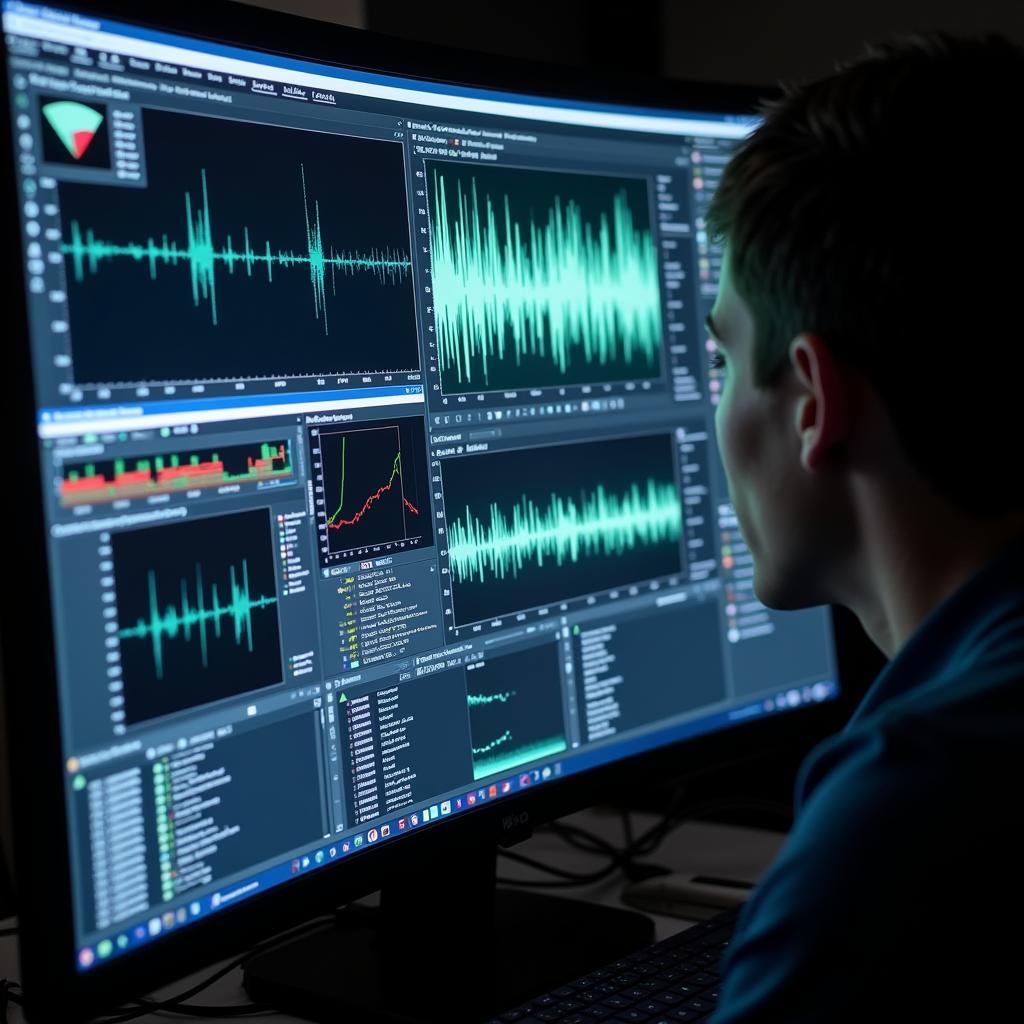Objectivity In Research is paramount, especially when delving into the enigmatic realm of the paranormal. It acts as a crucial filter, separating genuine phenomena from wishful thinking and observer bias. How do we ensure our pursuit of the unknown remains grounded in sound methodology? Let’s explore the vital role objectivity plays in paranormal research.
Maintaining Objectivity in Paranormal Research: A Balancing Act
The inherent challenges in paranormal research demand a rigorous approach to objectivity of research. The subjective nature of experiences, coupled with the lack of readily replicable results, presents a unique set of obstacles. However, by adhering to scientific principles and established research methodologies, we can strive for objectivity and enhance the credibility of our findings. One crucial aspect is acknowledging the potential for bias and implementing strategies to mitigate its influence.
Maintaining research objectivity requires careful consideration of several key elements: meticulous documentation, rigorous data collection, and a willingness to consider alternative explanations. It also involves a commitment to transparency, allowing others to scrutinize our methods and findings. This open approach invites constructive criticism and fosters a collaborative environment conducive to uncovering the truth.
 Paranormal Research Objectivity and Evidence Collection
Paranormal Research Objectivity and Evidence Collection
The Importance of Impartiality in Paranormal Investigations
One of the advantages of quantitative research is that it focuses on measurable data, minimizing the influence of personal interpretations. This approach is particularly relevant in paranormal research, where subjective experiences can easily be misconstrued. By quantifying observations whenever possible, we move closer to objectivity and enhance the reliability of our conclusions. For instance, instead of relying solely on personal accounts of a “cold spot,” we can use temperature sensors to record precise measurements, providing verifiable data for analysis.
Furthermore, embracing skepticism is not a sign of disbelief, but rather a critical component of objectivity. Healthy skepticism encourages us to question assumptions and seek alternative explanations for observed phenomena. This discerning approach allows us to separate genuine anomalies from mundane occurrences, paving the way for more meaningful discoveries.
How Does Objectivity Influence Paranormal Research Outcomes?
Objectivity in research directly impacts the validity and reliability of our findings. By minimizing bias and adhering to scientific principles, we increase the likelihood of obtaining accurate and reproducible results. This commitment to objectivity strengthens the credibility of paranormal research, fostering greater acceptance and understanding within the broader scientific community.
Dr. Evelyn Reed, a renowned psychologist specializing in perception and cognition, emphasizes the importance of objectivity: “In any field of inquiry, especially one as complex as paranormal research, objectivity is the cornerstone of credible investigation. Without it, we risk falling prey to our own biases and misinterpreting data, leading us further from the truth.”
Equal research day highlights the importance of fairness and inclusivity in research, which can also be viewed as a facet of objectivity. Ensuring diverse perspectives and avoiding discriminatory practices contribute to a more comprehensive and unbiased understanding of the phenomena under investigation.
 Data Analysis in Paranormal Research: The Importance of Objectivity
Data Analysis in Paranormal Research: The Importance of Objectivity
Conclusion
Objectivity in research is an essential tool for navigating the complexities of the paranormal. By embracing scientific rigor, acknowledging potential biases, and maintaining a healthy dose of skepticism, we can move closer to understanding the mysteries that lie beyond our current grasp. It is through this commitment to objectivity that we can elevate paranormal research to a more respected and scientifically sound discipline.
FAQ
- What are some common biases in paranormal research?
- How can technology enhance objectivity in paranormal investigations?
- What role does skepticism play in maintaining objectivity?
- What are some examples of objective data collection methods in paranormal research?
- How can researchers minimize the influence of personal beliefs on their findings?
- Why is objectivity crucial for the credibility of paranormal research?
- What are some ethical considerations related to objectivity in paranormal investigations?
Common Scenarios Where Objectivity Is Key
- Analyzing EVP recordings: Objective analysis requires considering alternative explanations for sounds, such as environmental noise or equipment interference.
- Investigating reported apparitions: Objective documentation involves gathering eyewitness testimony, photographic evidence, and environmental data to assess the validity of the claims.
- Assessing physical phenomena: Objective measurement using calibrated instruments helps distinguish genuine anomalies from natural occurrences.
Further Exploration
For a deeper dive into research objectivity, explore our articles on Medical Student Research and Research Objectivity.
Contact Us
For assistance with your Paranormal Research or any related inquiries, please contact us:
Phone: 0904826292
Email: research@gmail.com
Address: No. 31, Alley 142/7, P. Phú Viên, Bồ Đề, Long Biên, Hà Nội, Việt Nam.
Our customer service team is available 24/7 to support your needs.